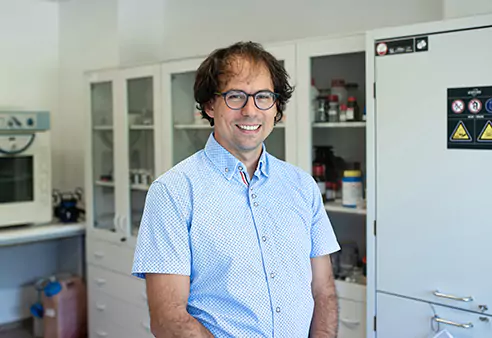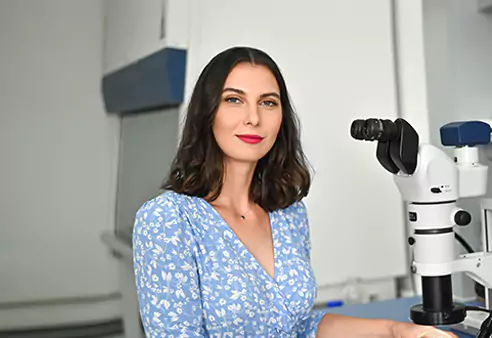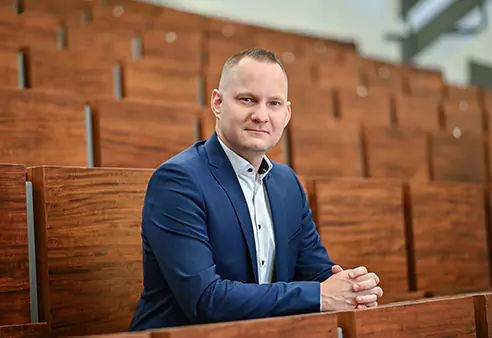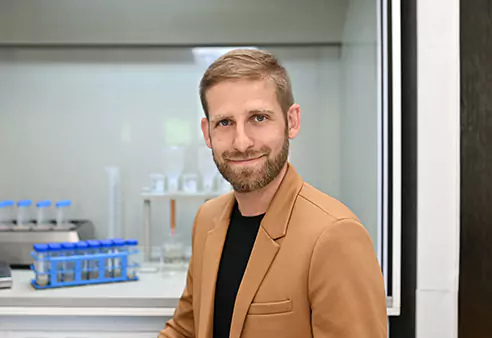The social media boom has turned disinformation and hate speech on the internet into one of the most pressing issues facing modern society. Ing. Ivan Srba, PhD., an expert on artificial intelligence and machine learning, works at the Kempelen Institute of Intelligent Technologies in Bratislava (KInIT) and his research is directed at tackling these issues.
Ivan Srba’s and his KInIT colleagues’ research helps fact-checkers and journalists with efficient evaluation of disinformation posts on social networks. Thanks to their feedback, he and his team created a global fact-checking database that can be searched in a similar way to a search engine. “The fact-checker can take a Slovak post, for example from Facebook, run it through our app and see the same post fact-checked elsewhere – even in a different language. This allows the fact-checker to see how the post was evaluated by a colleague from another country and what sources were used,”Ivan Srba explains. The database is used mainly by fact-checkers in central Europe, especially within CEDMO, an international hub for fighting false information that KInIT is part of. “These tools help us overcome language barriers. As we know, in small countries, many people are served disinformation mostly in their native language, not in English,” he adds.
Together with his colleagues, he is currently working on developing a tool that will screen online content and provide a credibility analysis. The analysis will reveal incorrect information and argument fallacies. “This can serve as a basis for a fact-checker to decide whether the text is worth evaluating. On the other hand, a journalist will know the article is not a good source of information.”
His research also deals with ChatGPT, other AI language models, and their effect on the creation of disinformation. He and his team suggest new methods that could enable automatic detection of automatically generated content that presents a threat. Fortunately, we have yet to see – at least in Slovakia – these models used to create and spread disinformation, but we think that’s just a matter of time.“ Besides fighting disinformation, Ivan Srba tries to help journalists create new more efficient and quicker ways of creating content by teaching them how to use the latest technology in artificial intelligence, such as language models.
Together with his colleagues at KInIT, he also trains artificial intelligence on smaller datasets, which makes the process more efficient. The resulting artificial intelligence can also be called greener, as it uses less electricity. They also deal with independent auditing of social networks. In 2022, he managed to advance into the second evaluation round with his ERC project, in which he designed a new research area for an AI model-managed algorithmic audit of social media artificial intelligence systems and their tendencies to spread harmful content.
Ivan Srba was led to science by his parents, who are both IT experts. During his studies at the Faculty of Informatics and Information Technologies of the Slovak University of Technology in Bratislava he worked on several online tools that helped students to study. These included community-based Q&A systems, where a community would seek answers to individuals’ questions. He noticed some students exploited these systems to ask questions related to theses they were supposed to be exploring themselves. “This launched my interest in anti-social behaviour online, and then I got to disinformation,” he says about his beginnings in science.
Ivan Srba has gathered experience in many international projects, within which he has closely collaborated with world-class universities, such as Harvard University, the University of Sheffield, and the University of Lugano. He shares the results of his research at international events and seminars, such as the prestigious Heidelberg Laureate Forum and the Dagstuhl seminar.
When he is not working on science, he likes to travel. Ideally, he ties this together with his second main hobby, photography. However, he spends most of his free time with his family and two dogs.



